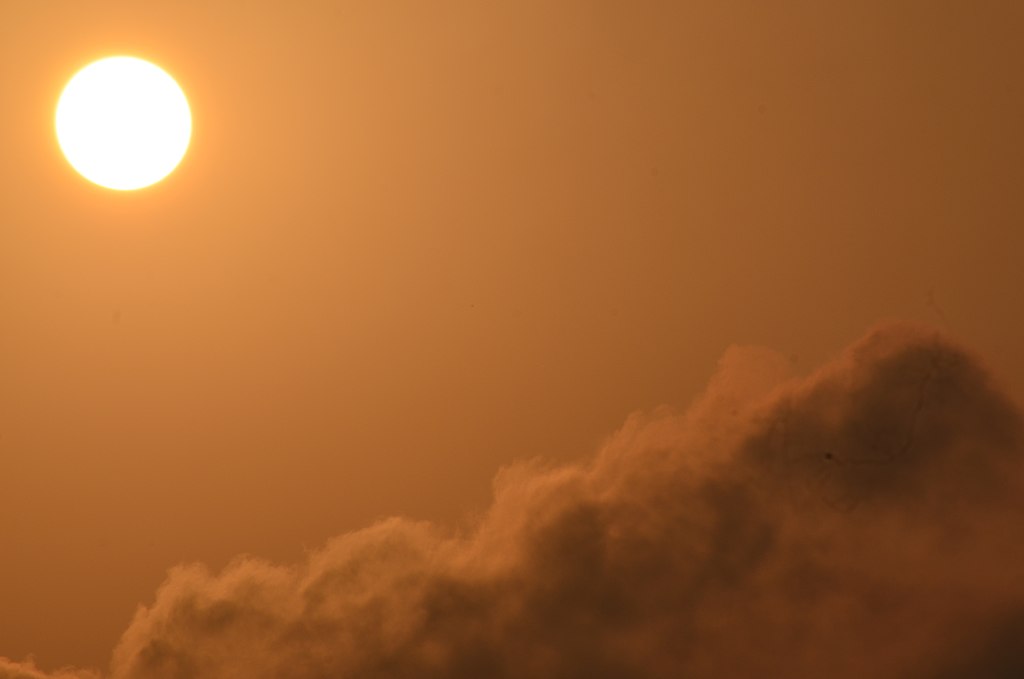
Dr Ramit Debnath is first author of a study which measures India's climate vulnerability and develops a heat index to show the impact on humans.
The heat index helped us figure out what needs to be done to improve how India measures its vulnerability to climate change.
Dr Ramit Debnath
Climate change-induced heatwaves in 2022 left almost 90 percent of Indians more vulnerable to public health issues, shortages of food staples and increased risks of death, according to a new study led by Gates Cambridge Scholar Dr Ramit Debnath [2018] published in the PLOS Climate journal.
India currently uses a national Climate Vulnerability Indicator (CVI) to measure its climate vulnerability and plan for adaptation. The CVI includes many different socioeconomic, biophysical, institutional, and infrastructural factors. But it doesn’t incorporate any measures to deal with primary climate change risks like heat waves, which is a missed chance.
The new study is the first to include a “heat index”, which measures how hot the human body feels relative to surrounding conditions when humidity and air temperature are added together.
“So, we could figure out how extreme heat really affects people,” said first author Debnath, Cambridge Zero Fellow at the University of Cambridge. “It helped us figure out what needs to be done to improve how India measures its vulnerability to climate change.”
This study shows that the CVI’s failure to include measures of the main risks and threats of climate change (like heatwaves), also makes it harder to identify the areas of the country most vulnerable to climate change.
Some of those unidentified areas at the intersection of climate extremes and non-climate, structural and social-economic factors (shown by SDGs) may also be at risk of increased sensitivity. The research used publicly available data on state-level climate vulnerability indicators from the Indian Government’s National Data & Analytics Platform to classify severity categories. They then compared India’s progress on its SDGs over 20 years (2001-2021) with extreme weather-related mortality from 2001-2021.
Results showed that India’s global ranking according to the United Nations Sustainable Development Group has gone down in the last 20 years because it hasn’t met the goals for 11 of the 17 UN Sustainable Development Goals, all of which were very important for climate action (SDG 13).
Previous studies have shown that frequent heatwaves will have a bigger effect on India’s economy and public health. Long-term predictions show that it will affect more than 300 million people by 2050 and lower the quality of life for almost 600 million Indians by 2100. But there has not been enough focus on short-term effects and plans for dealing with heatwaves.
The study also found that not having a physical risk measure for heatwaves can slow progress in SDG 2 (zero hunger), SDG 3 (good health and well-being), SDG 5 (gender equality), SDG 8 (decent work and economic growth), SDG 9 (industrial innovation and infrastructure), SDG 10 (less inequality), and SDG 15 (life on land).
Scaling down the findings to understand the impact of heatwaves on India’s urban sustainability, the researchers found that almost all of Delhi hits dangerous heat index levels during a heatwave.
Co-author Dr Ronita Bardhan, Associate Professor of Sustainable Built Environment at University of Cambridge says: “Delhi’s heat vulnerability will exaggerate indoor overheating especially for those people in affordable housing who have fewer resources to cool themselves. Social cooling practices need to be understood to adapt to and mitigate the heat-related health and energy burdens.”
Solutions
– Improving Measurement: Policy action is needed to improve assessment of the multi-dimensional nature of climate vulnerability and how climate events affect SDGs.
– Prevent overheating in low-income housing: This is a critical policy measure from an urban sustainability viewpoint that can promote resilient methods of mitigation and adaptation in cities like Delhi that are particularly vulnerable to heatwaves.
– Build Partnership: Building heatwave resilience would require strengthening partnerships with neighbouring countries on the Indian subcontinent.
– International lessons: Learn from heatwave preparedness leaders like Australia, the US, the UK, and the EU to create holistic heatwave plan.
*The research was supported in part by the Bill and Melinda Gates Foundation, the Quadrature Climate Foundation, the Laudes Foundation, the Keynes Fund and the Africa Alborado Grant. Picture credit: Dcdinda and Wikimedia commons.












